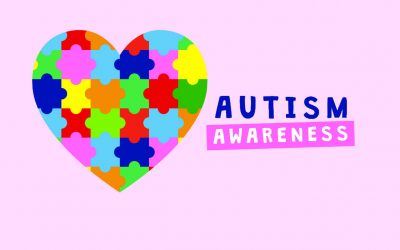Alternative normalities
Someone wrote:
I read somewhere Donna Williams wrote about a glutamate concoction she said made her feel better. Are you familiar with this? I ask because of a recent NIH study that talked about glutamate neurons role in autism. The study was published in the journal Nature Genetics in March and is considered a break through in the genetic mapping of ASD. I would really like to find out more about this.
My reply,
No, not glutaMATE, glutaMINE.
Glutamate in excess damages the brain.
Many people with autism have excess glutamate and low glutamine.
Glutamine counter-balances glutamate and reduces excess ammonia which harms the brain.
Glutamine has nothing to do with gluten and contains no gluten.
I have been on 2000mg Glutamine for over 15 years, longer than anyone else with autism who I know has used it.
I was already on dietary interventions since the 1990s and was first put on nutritional supplements- Vitamin C, zinc, multi-vitamins – around 1972-1975 when I was 9-12 years old. I was one of the first known people with autism in the world whose parents trialled the use of nutritional supplements. I have mentioned this in Nobody Nowhere and some of my other works and lectures and attribute this intervention to improved health and language processing at that time and coincided with my transition from echolalia and stored strings into interpretive (meaning based) language between age 9-11 (two sided communication took longer to emerge).
Glutamine is considered an important ‘brain-food’. Whilst it is traditionally a sports medicine, Glutamine is used as a growth factor, used to raise T-cell count (immunity), used as an anti inflammatory (its the building block of glucosamine which is made from glutamine+glucose), as a natural anti-depressant and anti-anxiety supplement, used in difficult to treat diabetes, used in recovery from gut surgeries and in inflammatory bowel conditions, used to treat alcoholism, used in the management of schizophrenia and dementia and as a ‘smart drug’ by those with learning and developmental disabilities. It is uses in the management of systemic inflammation including that of the gut and blood brain barrier.
It is NOT suitable for ALL people with autism nor is it effective for ALL people with autism but a 30 day trial usually tells whether it will be helpful or not.
It is not suitable for those who also have muscle wasting diseases.
A naturopath can oversee a 30 day trail of glutamine to ensure it suits the person.
Low or homeopathic doses of glutamine do not seem effective.
Doses should also not be exceeded.
The advised adult dose by the company who makes it, was generally around 2000mg.
I have known of children around 9 generally taking around 1,500mg, younger children taking around 1000mg.
It is generally not recommended for use by those under 15.
Glutamine changes the chemical structure of the brain.
As a consultant over 3 years at a school where a significant number of the children trialled glutamine, I saw children with autism on glutamine who were undersized then grow taller over a year of taking it. I also saw significant developmental and communication improvements in those children whose parents felt it was beneficial to them. This does not mean glutamine would cause the same improvement for all children with autism.
It is a supplement on the treatment protocol of Paul Shattock, a world leading expert in nutritional factors in autism and who is a pharmacologist.
I have been on 2000mg glutamine powder (the powder is cheaper than capsules by the way) for 15 years.
It is purchased from GNC stores in the UK, USA, Australia but probably available through most health food stores.
It occurs naturally in raw fish, raw eggs, raw meat (yuk).
It can be mixed into dairy free margarine, rice milk or other foods but is destroyed by cooking.
It is one of three amino acids which make the essential chelation/immune boosting supplement, glutathione (the others being glycine and cysteine)
Supplementing with some amino acids requires supervision by a naturopath as excesses in one can cause deficiencies in others.
In those for whom glutamine proved beneficial in a 30 day trial, the improvements which may occur within 3 months of starting glutamine may be those associated with improved gut function, improved brain health in reducing toxins crossing into the brain through improving the blood-brain barrier, improved brain health in reducing ammonia accumulation in the brain which causes ‘brain fog’, improved functioning associated with reduction of anxiety and raising mood.
I use 2000mg Glutamine in conjunction with a low salicylate, CF/GF, low sugar diet plus 15 mg zinc, 1000mg Calcium Ascorbate (non acid vit C), mega B complex, calcium-magnesium 1,500mg, chromium 400mcg, Selenium 60mcg and Omega 3 2000mg (as well as a SMALL amount of an atypical antipsychotic which is used in managing co-morbid bipolar/social phobia/OCD/Tourette’s issues).
Naturopaths train for up to 4 years in the study of nutritional and natural medicine on health and development. Pharmacologists are specialists in chemistry. GPs and most medical doctors who have not done further training in nutritional medicine often have only got a few weeks of study in nutritional medicine. A dietitian is also not a naturopath unless they have also studied naturopathy. Ideally, a qualified medical doctor who also has a formal qualification in naturopathy is an ideal person to discuss nutritional health with. These are rare. Most GPs and doctors with no formal training in naturopathy do not believe in the use of natural medicine. Many still do not believe in a significant relationship between dietary interventions and autism unless they are specifically given and read peer reviewed medical journal studies proving such relationships such as those published in publications like The Lancet. As drug companies fund most medical research, there are more published studies in such journals on the relationship between drugs and autism than there is on nutrition or supplements on autism. Drug companies are in direct financial competition with the companies which make nutritional supplements, including Glutamine.
To learn more about my use of Glutamine within a wider treatment protocol, read Everyday Heaven, Autism; An Inside Out Approach, The Jumbled Jigsaw or watch the DVD, The Dietary Wheelchair. You can find information on all of these on www.donnawilliams.net
I hope this helps clear up the poor information floating about.
Sincerely,
Donna Williams
autistic author, artist, composer, screenwriter
www.donnawilliams.net


